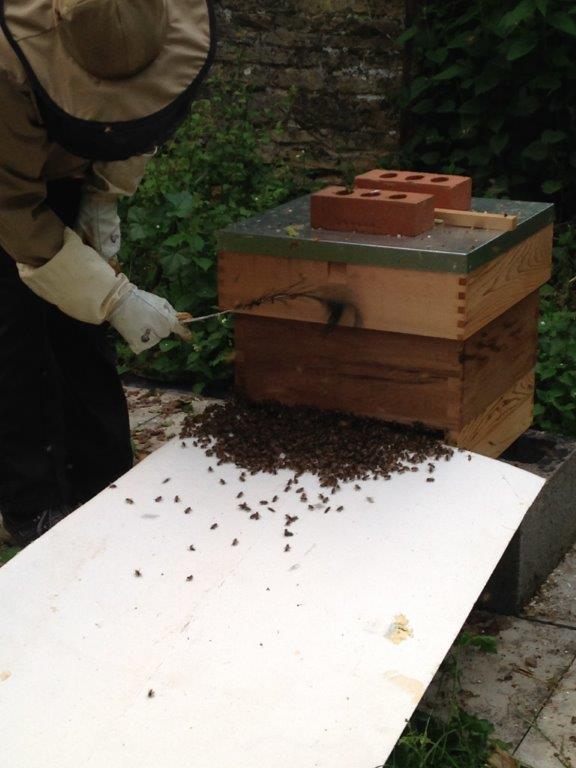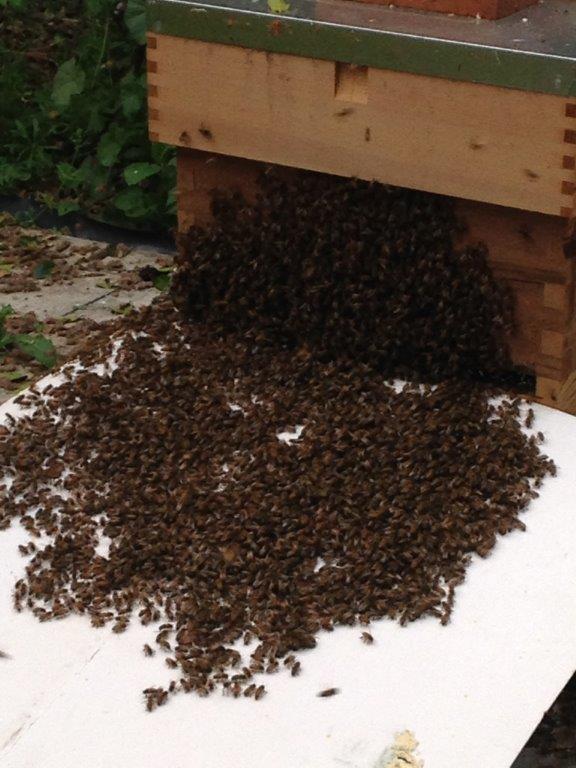We’re very lucky at Sacrewell to have a team of staff and volunteers with many talents, including beekeeping.
Our Learning and Interpretation Officer Nikki Cherry and her husband Kelvin first attended a beekeeping course at Sacrewell several years ago and it’s something she has been keen to reintroduce as a learning resource.
Earlier this year, Nikki and Kelv set up a hive behind the farm house and have been waiting for a swarm of bees to hive.
Bees tend to swarm when the weather is warm and dry and last weekend was perfect conditions.
Nikki said: “The old queen bee swarms with half the worker bees, leaving the new queen in the hive. Swarming is nature’s way of reproduction – if you think of the colony as the organism rather than individual bees, it divides by swarming.”
One of the hives in Nikki’s garden swarmed at the weekend and the bees settled in a tree. The swarm was knocked off the branch and into a box, which was quickly turned upside down leaving a slight gap so the bees can come and go. They waited for all the bees to settle into it before carefully transporting them to Sacrewell.
Once at the farm, the bees were tipped onto a ramp leading up to the hive, where the bees waft the smell of the queen with their wings to encourage all the bees to settle inside. Once in, the bees start to draw (build) the comb so that the queen can lay eggs.
Nikki added: “Sacrewell is part of the William Scott Abbott Trust, a charity founded to teach people about food and farming.
“Bees and beekeeping are an essential component of food production as bees are critical to the pollination of many crops and fruit; and also produce honey. Much of British farming’s food production relies on bees as a key component of the food chain.”
The hive at Sacrewell will be interpreted but as bees sting, we ask that our visitors respect their space and don’t disturb them.

